A Day in the Life: Dylan the Game Support Developer
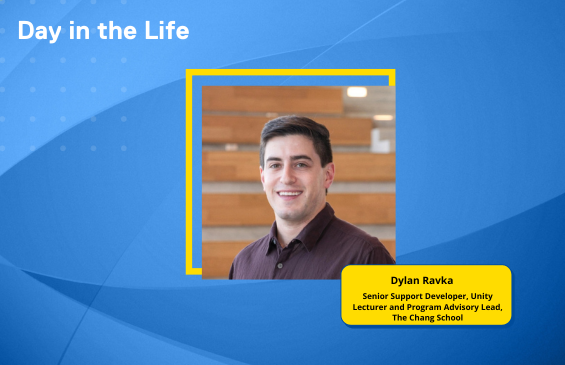
October 10, 2024
When thinking about potential careers in the gaming industry, more creative roles, like game designers or animators, are usually top of mind for most people, but there are some lesser-known roles like video game support developers who aren’t centre stage yet play a vital role.
To give you a better idea of what a video game support developer does, Chang School Stories spoke with Dylan Ravka on what a typical day looks like for him. Dylan is a Senior Support Developer at Unity and a Lecturer and Program Advisory lead at The Chang School. (Unity is a cross-platform game engine that allows developers to create and grow real-time 3D games, apps, and experiences across many different industries.) Dylan was also recently involved with the curriculum development for the new certificate, Programming for Game Development, which launched this fall.
Before we dive into Dylan’s day, let’s first explore what a support developer is in the gaming industry. This role is someone who helps game developers with implementation and resolving issues in their games, rather than building new features from scratch. While traditional game developers work on the initial design, coding, and launch of a game, in his role Dylan often helps developers integrate Unity services like multiplayer and voice chat before the games launch. He also helps developers post-launch to ensure the game runs efficiently, users encounter minimal issues, and the overall gaming experience remains enjoyable.
Their role is crucial in an industry where players expect constant updates, quick bug fixes, and high-quality service. They are the “behind the scenes heroes” who troubleshoot, maintain servers, handle software patches, and make sure every line of code remains optimized as the game evolves.
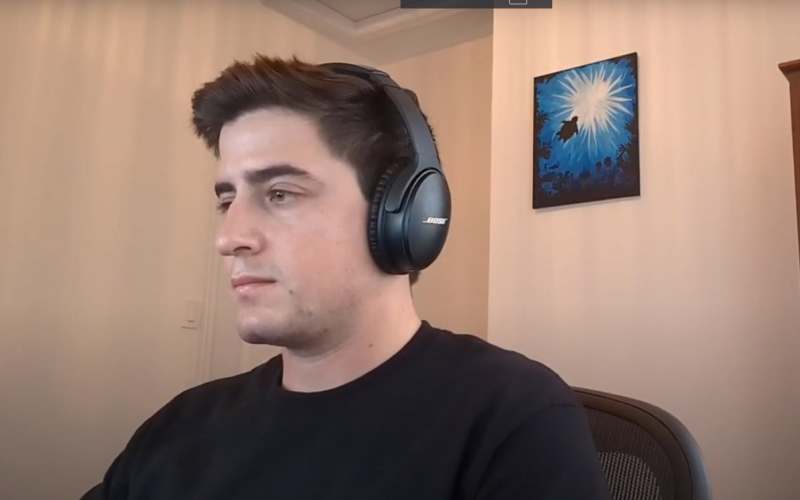
No Two Days Are the Same
“Like most people, I start my day with coffee,” says Dylan, when recounting what a typical day looks like for him.
Dylan says he then checks his emails and messages for incoming tickets from game developers and determines whether it’s an issue he can help with or whether he needs to raise a support ticket. “There may be problems that come across my desk, like if players can’t hear each other in a live game or a developer is integrating a new voice chat solution and they’re experiencing an issue they can’t resolve,” he says.
Dylan has a stand-up meeting that kicks off his day to let the support team know what he’s working on. This is followed by daily triage meetings with the support team and they review any new tickets that come in from game developers.
“I’ll either assign the ticket to myself or be assigned one from another team member,” he says. “Then I plan out my day based on the importance of the problems I need to solve and their urgency.
“No two days are the same: one day I could be helping a gaming studio troubleshoot a critical issue with their Triple A game that's impacting a lot of players while the next I might be supporting a game developer who's new to Unity and getting familiar with the tools.”
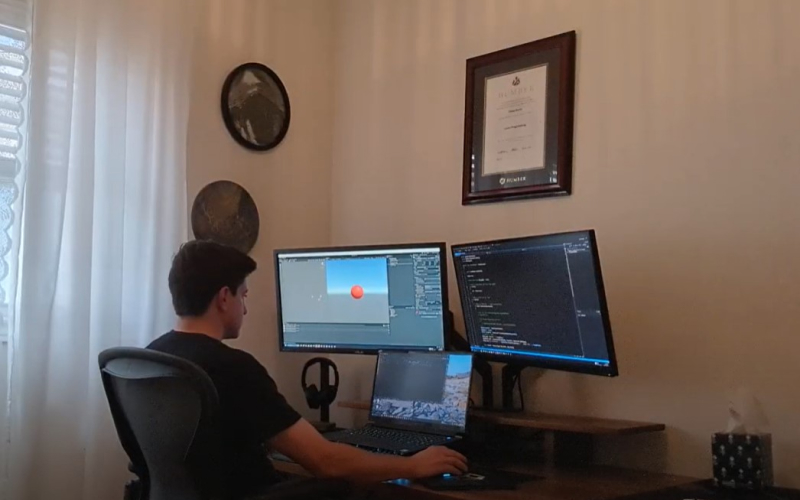
To get his job done, Dylan is the go-between for customers and the engineering team to try and solve problems.
“We give feedback to the engineering and product teams so they can improve the software development kits (SDKs) and products,” he says.
While some problems can be solved by the end of the day, others that are more complicated can take weeks to complete, explains Dylan. This might be the case where the developers need to release a new SDK and test it across all of the different platforms, which is time-consuming.
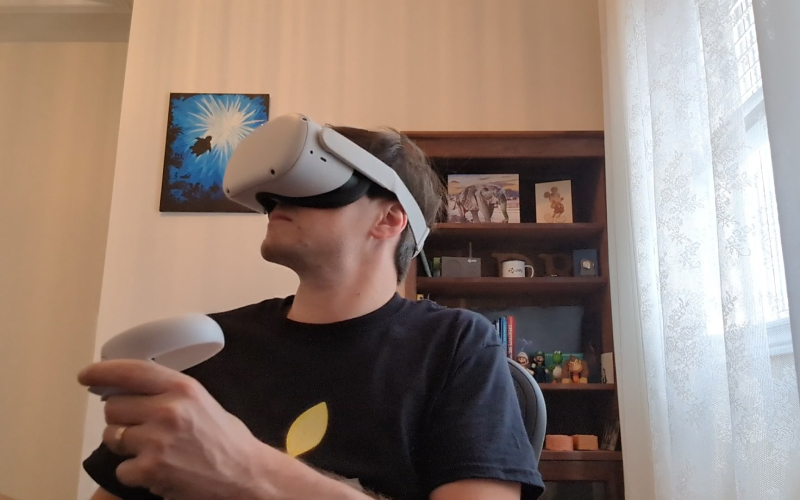
Dylan is often asked to test a customer’s virtual reality game on his Meta Quest VR headset to try and reproduce an issue or investigate to find the root cause and find a solution.
While it may sound like Dylan has been in his role since he began his career, he didn’t get his start in the industry at a gaming company. Before pivoting into gaming, he worked for a healthcare company that created augmented reality applications for pharmaceutical companies. The skills he learned there, while in a completely different industry, helped him learn how to diagnose a problem and come up with a solution to solve it – a critical aspect of the job for a game support developer.
“Because I was providing technical support for the projects I created, I was the only one who knows how it works. I made sure the laptops are connected with the screens and they’re displaying the interactive content as well as onboarding the healthcare professionals to help them engage with the application,” he explained.
What Dylan likes best about his job is that he’s not just sitting behind a computer programming all day but interacting and engaging with people, which has helped launch his teaching career.
Unplugging After a Long Day
While it can be rewarding to help people and solve problems, sometimes it’s not just a “one and done” type of approach.
“It’s definitely exciting and keeps me on my toes,” Dylan says. “There’s always a lot to do and I’m very passionate about the gaming industry.”
So how does Dylan unplug after a long day? To disconnect, Dylan takes advantage of the cottage and goes kayaking around the lake or hits the links at the local golf course.
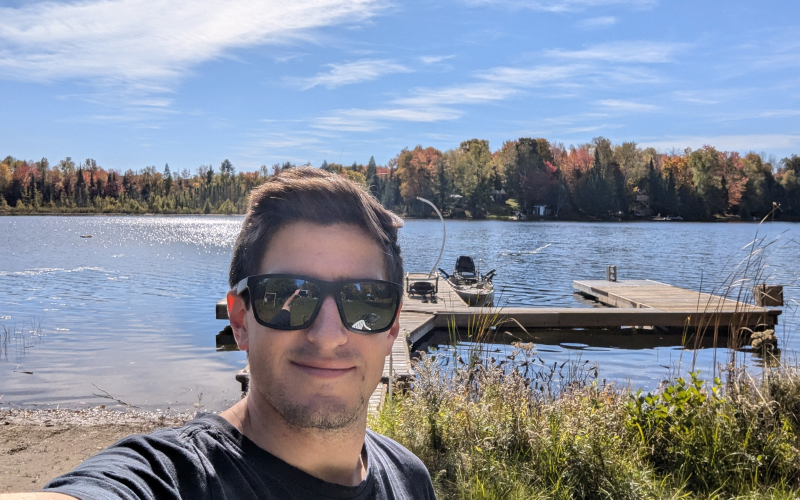
“The other weekend I was at the cottage and I didn’t look at my phone for hours and I didn’t even know where it was and wasn’t rushing to look for it. It felt amazing.”

